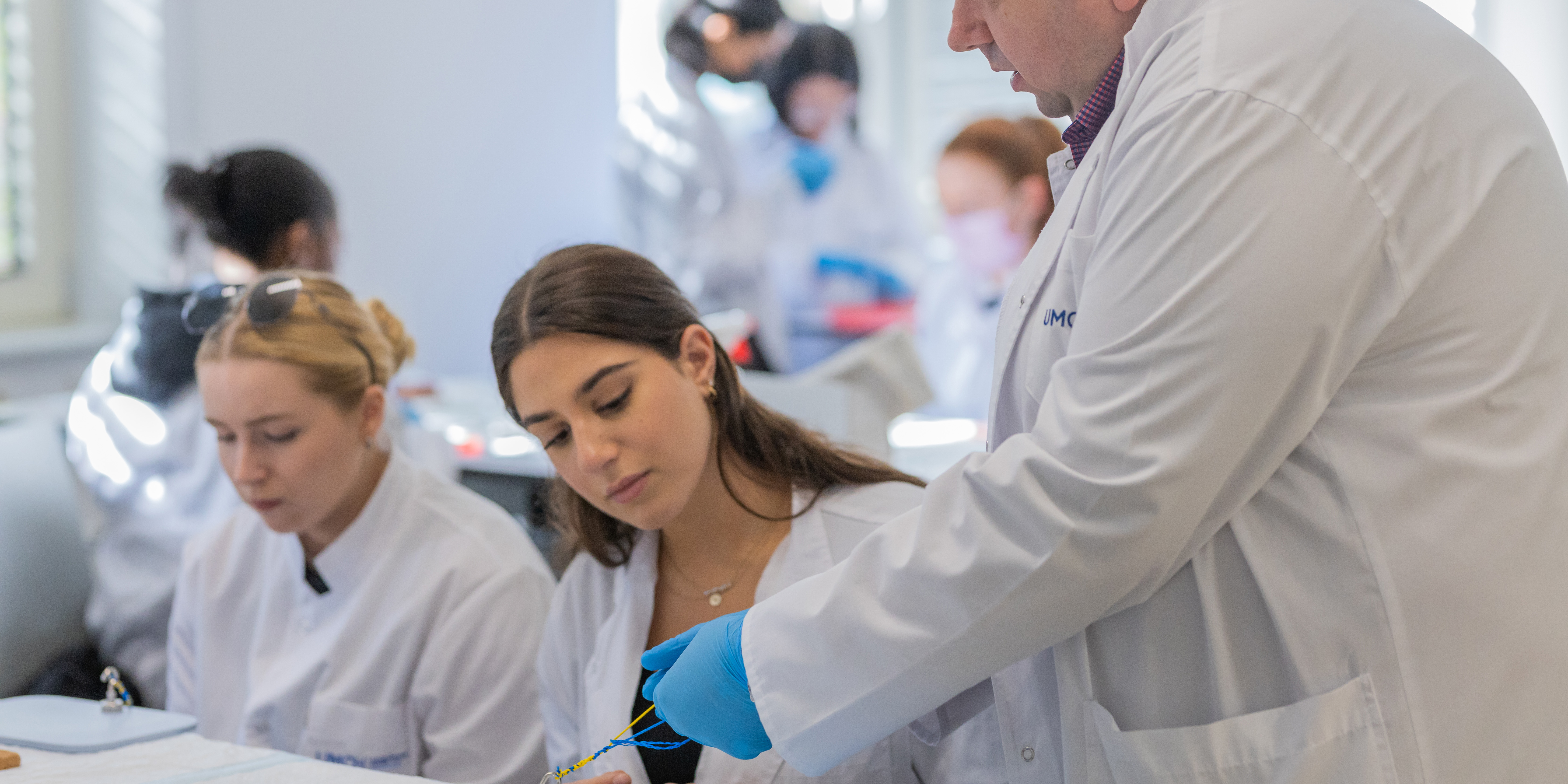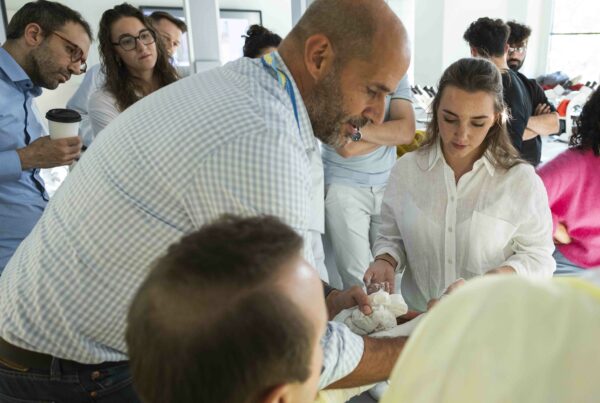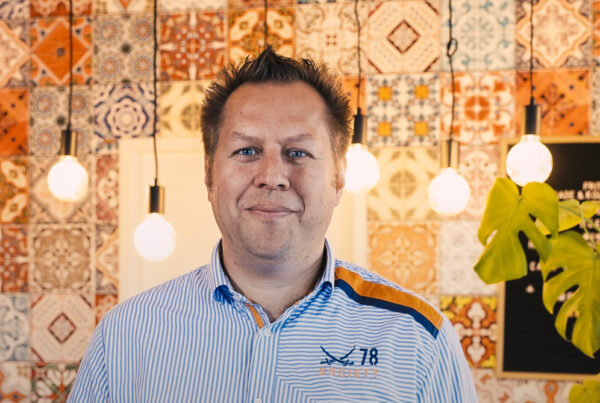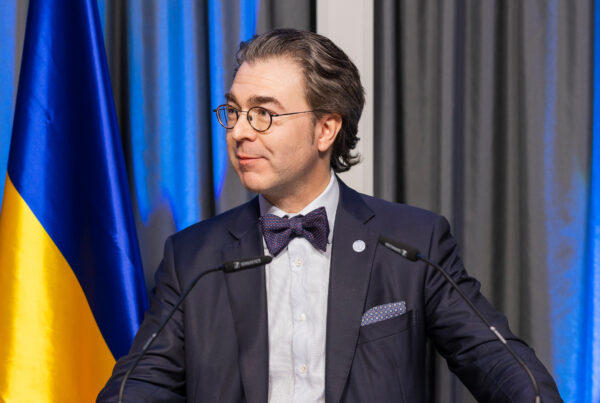Prof. Dr. med. Oliver Bruder and Dr. med. Thomas Schmitz, renowned cardiologists from the Department of Cardiology and Angiology at Elisabeth Hospital in Essen—one of UMCH’s teaching hospitals—recently led a highly engaging workshop on aortic valve stenosis.
The four-hour course provided students not only with in-depth theoretical insights into this common heart valve condition but also offered them the chance to gain hands-on experience under expert guidance.
Aortic valve stenosis, in which a narrowing of the aortic valve restricts blood flow from the heart, can lead to severe health issues such as shortness of breath and heart failure. During the workshop, students learned about diagnostic methods, including echocardiography, and modern treatment options, such as the minimally invasive TAVI (Transcatheter Aortic Valve Implantation).
A standout moment was Prof. Dr. Bruder’s recounting of the heart surgery performed on rock star Mick Jagger, used as an example of the advances in modern heart medicine. Jagger, the frontman of the Rolling Stones, returned to the stage in record time following a successful TAVI procedure—a remarkable feat showcasing the potential of this therapy.
The practical part of the workshop was made possible by the generous support of General Electric and Medtronic: GE provided state-of-the-art echocardiography equipment, allowing students to analyze heart valve function themselves, while Medtronic’s TAVI simulator enabled them to practice the procedure in a realistic setting. This technology offered students a tangible experience of how heart valve interventions are performed in practice.
For first- and second-year students, this was a rare opportunity to gain practical experience early in their studies. Many were thrilled to bridge the gap between theory and practice, conducting their first independent echocardiograms and exploring the mechanics of the aortic valve.
At UMCH, great emphasis is placed on early and practical student training. With access to cutting-edge medical equipment and realistic case studies, students are able to deepen their passion for medicine and are well-prepared for the transition to the clinical phase and the challenges of daily medical practice. These insights are made possible through the commitment of clinical directors and specialists at UMCH’s teaching hospitals.





















